Amid ongoing U.S. and South Korean efforts at diplomacy with North Korea—to limit its nuclear program, to pursue peace on the Korean Peninsula, and more—where does Japan fit in? As four Brookings experts discuss below, Japanese Prime Minister Shinzo Abe has been successful in forging a relationship with President Trump; whether that translates into a meaningful seat at the table for Japan in talks regarding North Korea is perhaps another matter. Brookings experts Bruce Jones, Mireya Solís, Richard Bush, and Michael O’Hanlon will be in Tokyo for the upcoming Mt. Fuji Dialogue, which brings together current and former government officials, policy experts, and other leading voices in U.S.-Japan affairs to discuss security and military issues, trade, the state of the alliance, and more.
![]() Bruce Jones, Vice President and Director of the Brookings Foreign Policy program (@brucebrookings): Preparations are well underway for a second summit between U.S. President Donald Trump and North Korean leader Kim Jong-un. As I wrote in a recent op-ed for the Nikkei Asian Review, the shift over the several last months from escalating crisis and a potentially devastating military confrontation with North Korea toward diplomacy is prima facie a good thing. As I’ve been warning, though, diplomacy itself is not a guarantee of peaceful outcomes. Not only does not all diplomacy succeed—in fact, it frequently fails—but also not all “successful diplomacy” produces good outcomes over time.
Bruce Jones, Vice President and Director of the Brookings Foreign Policy program (@brucebrookings): Preparations are well underway for a second summit between U.S. President Donald Trump and North Korean leader Kim Jong-un. As I wrote in a recent op-ed for the Nikkei Asian Review, the shift over the several last months from escalating crisis and a potentially devastating military confrontation with North Korea toward diplomacy is prima facie a good thing. As I’ve been warning, though, diplomacy itself is not a guarantee of peaceful outcomes. Not only does not all diplomacy succeed—in fact, it frequently fails—but also not all “successful diplomacy” produces good outcomes over time.
Despite real challenges, I think there are still pathways to credible success. The following elements are vital:
- First, there has to be a clear understanding between Beijing and Washington, about how and when pressure will be added, or lifted, or tempered in response to actions by North Korea.
- Second, Secretary Pompeo, or perhaps an international diplomatic figure like the United Nations Secretary General acting in tight coordination with the United States, could lay out what a peace agreement between the United States and North Korea would look like.
Jones: An important diplomatic reality is that Japan is getting badly left behind.
In all of this, an important diplomatic reality is that Japan is getting badly left behind. Prime Minister Shinzo Abe was early in forging a successful relationship to Trump. He deserves credit for protecting the alliance from Trump’s initial destructive instincts. But Tokyo has been a secondary player in recent diplomacy, in part because it wavered from a stance of maximum pressure on Pyongyang. Despite Secretary Pompeo’s diligent alliance cultivation, Japan risks being left on the sidelines.
All of this put together portends a bumpy ride for a region whose overweening preference is for stability. The East Asian peace, which has kept the region free from war for decades, and enabled extraordinary economic growth, was based on that stability. That stability was in turn premised on a shared understanding of the American security role in the region, and on the primacy of trade and economic relations. Both of those peace pillars are now in question.
![]() Mireya Solís, Director of the Center for East Asia Policy Studies (@solis_msolis): Rapport and chemistry among leaders makes a tangible difference to the conduct of diplomacy. It is an established truism in U.S.-Japan relations that high points in the alliance have occurred when leaders have been close: President Reagan and Prime Minister Nakasone had the “Ron-Yasu” connection, and President Bush invited Prime Minister Koizumi to Graceland to mark their friendship.
Mireya Solís, Director of the Center for East Asia Policy Studies (@solis_msolis): Rapport and chemistry among leaders makes a tangible difference to the conduct of diplomacy. It is an established truism in U.S.-Japan relations that high points in the alliance have occurred when leaders have been close: President Reagan and Prime Minister Nakasone had the “Ron-Yasu” connection, and President Bush invited Prime Minister Koizumi to Graceland to mark their friendship.
In the “Donald-Shinzo” pair, however, we are not watching a replay of a long established pattern. Rather, we are testing a much grander proposition: whether a personal bond can help temper the predilection of the American president for tariffs as tools of economic growth and his deep-seated concern that allies free-ride on the United States.
The first 18 months of this grand experiment should give us hope, as U.S.-Japan relations enjoy a very strong footing. But the final verdict will have to factor in outcomes, outcomes that matter to Asian stability and to the resilience of the world economy. Will the United States help Japan overcome marginalization from summitry on the North Korea problem? Will the American president refrain from using the alliance card to squeeze concessions in trade negotiations? Will it be possible to avoid national security tariffs on autos that could blow up nascent efforts among like minded countries to reform the WTO?
![]() Richard Bush, Senior Fellow in the Center for East Asia Policy Studies and the John L. Thornton China Center (@richardbushiii): One of the virtues of the Six-Party Talks (with North Korea, South Korea, Japan, the United States, China, and Russia) was that Japan was one of the parties. Its inclusion reflected the fact that it had real interests at stake. It was particularly vulnerable to North Korean missiles and nuclear weapons. In the event of a nuclear deal, Tokyo would be expected—and wish—to make a major contribution to the economic rehabilitation of North Korea. Japan has been a major power of East Asia for decades, so it should be involved.
Richard Bush, Senior Fellow in the Center for East Asia Policy Studies and the John L. Thornton China Center (@richardbushiii): One of the virtues of the Six-Party Talks (with North Korea, South Korea, Japan, the United States, China, and Russia) was that Japan was one of the parties. Its inclusion reflected the fact that it had real interests at stake. It was particularly vulnerable to North Korean missiles and nuclear weapons. In the event of a nuclear deal, Tokyo would be expected—and wish—to make a major contribution to the economic rehabilitation of North Korea. Japan has been a major power of East Asia for decades, so it should be involved.
Another virtue of the joint declaration that emerged from the Six-Party Talks was that it called for issues like a peace accord and building a peace regime to be addressed by the parties concerned in parallel with negotiations to bring about the denuclearization of North Korea. That was appropriate, because it finessed the issue of which priority—denuclearization or a peace accord—should come first. The solution: Do them simultaneously. President Trump would have done well to remember that solution before he agreed with Kim Jong-un in Singapore in June this year to make an early declaration of the end of the Korean War. His mistake severely complicated Secretary of State Pompeo’s task of making real progress on denuclearization.
A third virtue of the Six-Party Talks was that South Korea was also one of the parties. After all, it is the Korean Peninsula. South Korea has the most to lose if multilateral talks shift the peninsular balance of power in Pyongyang’s direction. Moreover, it was always understood that South Korea would be a full party to any discussion of a peace accord and peace regime (as should China). That is highly appropriate since South Korea was the victim in the Korean War.
The flaw in President Trump’s Kim-centered diplomacy on North Korea is that it ignores the interests of U.S. allies. That needs to end.
![]() Michael O’Hanlon, Senior Fellow in the Center for 21st Century Security and Intelligence and Director of Research for Foreign Policy (@michaeleohanlon): The overwhelming priorities in Korea are to avoid war and to contain, then hopefully reverse, North Korean nuclear proliferation. As additional, reinforcing goals, we should want to see the elimination of chemical and biological arms, missiles of all ranges, and much of North Korea’s oversized military. All of these military and arms control objectives would be facilitated by a North Korean regime that committed to reform—even if it did so only incrementally, and within the parameters of a one-party polity, just as Vietnam and China have done in recent decades to varying degrees. Reform should also cover human rights. These latter goals are not as immediately crucial to Japanese, American, and South Korean security as the first objectives I listed, but they should not be ignored, either.
Michael O’Hanlon, Senior Fellow in the Center for 21st Century Security and Intelligence and Director of Research for Foreign Policy (@michaeleohanlon): The overwhelming priorities in Korea are to avoid war and to contain, then hopefully reverse, North Korean nuclear proliferation. As additional, reinforcing goals, we should want to see the elimination of chemical and biological arms, missiles of all ranges, and much of North Korea’s oversized military. All of these military and arms control objectives would be facilitated by a North Korean regime that committed to reform—even if it did so only incrementally, and within the parameters of a one-party polity, just as Vietnam and China have done in recent decades to varying degrees. Reform should also cover human rights. These latter goals are not as immediately crucial to Japanese, American, and South Korean security as the first objectives I listed, but they should not be ignored, either.
This rank ordering of objectives for our allied dealings with North Korea leads me then to conclude the following, as well:
- Japan’s concerns about medium-range missiles and Japanese kidnapping victims from the 1970s are valid, and important;
- American concerns about human rights in North Korea, remains of GIs from the Korean War, tragedies such as what happened to American college student Otto Warmbier, and North Korea’s development of ICBMs are also important;
- But none of these Japanese or American concerns should get in the way of a deal on nuclear weapons or of efforts to prevent an outbreak of war on the peninsula, because in regard to these latter matters, millions of lives are at stake, on the Korean Peninsula and in Japan and beyond;
- If human rights and non-nuclear weapons issues can be raised in a way that reminds Pyongyang of their importance to us, as well as their inherent moral significance, that should be done (even if North Koreans do not want to hear it). And it is a good reason to remember Richard Bush’s emphasis on the importance of close consultations with regional allies, in the context of any talks Washington holds with Pyongyang. However, we would be unwise to walk away from a meaningful deal on nuclear weapons simply because that same, initial accord fails to address every other issue of importance.
And I believe that a nuclear deal may be doable. Complete, irreversible, and verifiable denuclearization of North Korea according to a Libya, South Africa, or Ukraine model is not realistic in the short term. But a deal that caps the size of the North Korean arsenal and prevents further testing of nuclear and missile forces, in exchange for some lifting of sanctions, does make sense for all.
This kind of deal would require getting North Korea to submit a database of its nuclear facilities and agree to the deployment international inspectors to those sites. Searching for undeclared sites will also be necessary. The inspectors will have to confirm the nuclear facilities have been shut down, ultimately ensuring that centrifuges and other weapons-production systems have been dismantled and shipped out of the country.
As progress down this path is made, some of the recent U.N. sanctions that target the North Korean regime’s main trade avenues could be suspended, then lifted, and a peace treaty concluded. Other sanctions, especially those codified in U.S. law, might be maintained until Pyongyang truly does disarm. And aid from Japan—as well as the United States and World Bank—can be held back until issues such as human rights and historical accountability are addressed, as well. These latter goals may take years to achieve, so I fear we will have to be patient. But an interim nuclear deal is probably the best way to get the overall process moving faster.
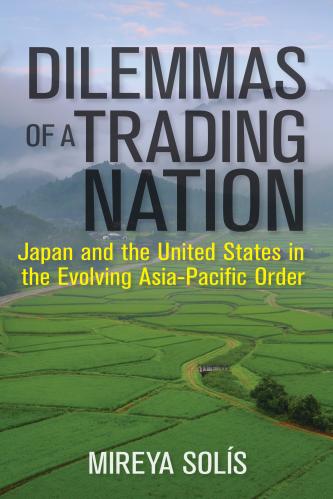
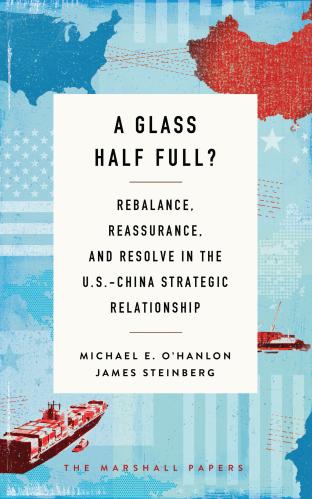
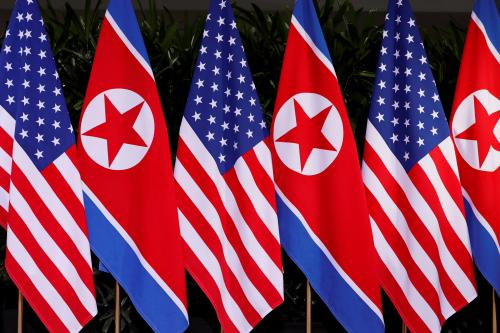
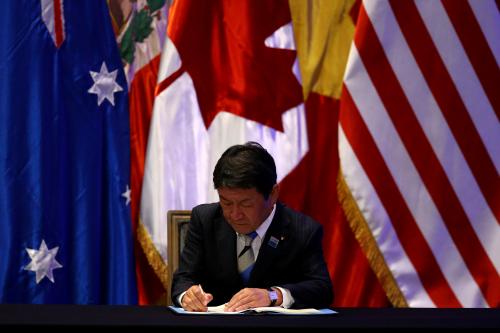




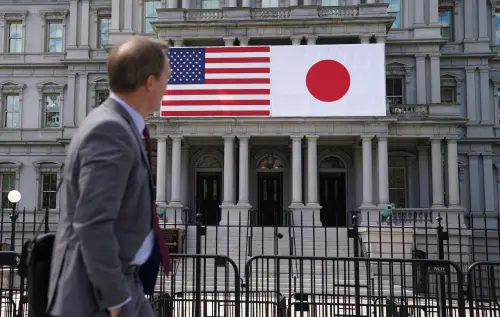
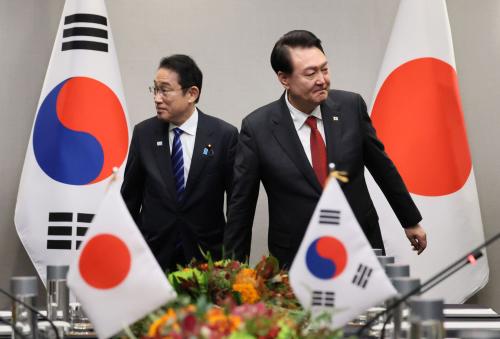
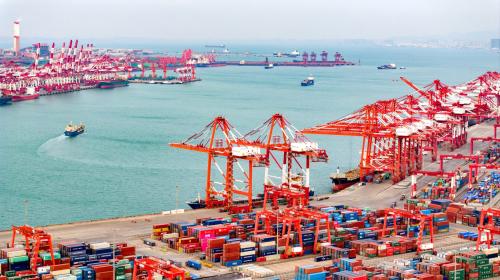
Commentary
Around the halls: Experts discuss Japan’s role in North Korea diplomacy
October 23, 2018